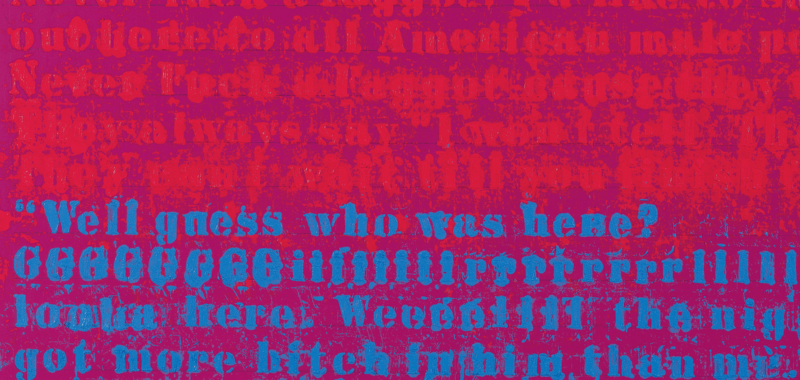This fall, discover Glenn Ligon’s sharp, insightful writing; Gustav Metzger ’s account of his extraordinary life, art, and political activism; and a collection of cartoons by Jason Rhoades that reveal the artist’s imaginative thinking.
A long-awaited and essential publication, Distinguishing Piss from Rain collects three decades of Glenn Ligon’s incisive examination of race, history, art, and contemporary culture. Best known for his landmark text-based paintings and sculptures, Ligon began writing in the early 2000s, and as artist and critic Wayne Koestenbaum says, “words are among the materials [Ligon] knows how to wield with irony, wit, multivalence, and directness.” Further showcasing his virtuosic combination of razor-sharp insight and anecdotal detail, Ligon’s essays engage with both the work of his peers, such as Julie Mehretu and Chris Ofili, and artists who came before him, including Felix Gonzalez-Torres and Andy Warhol, complemented by interviews with Helga Davis, Thelma Golden, Byron Kim, Hamza Walker and others.
Illastrations, meanwhile, offers a window into the mind of cult Los Angeles artist Jason Rhoades through a facsimile edition of an undated sketchbook of drawings by the artist. A leading figure of the 1990s international art world, Rhoades was a world builder, an outlier. “Imagine the internet as a colossal sculpture, built out of lumber, buckets, neon, extension cords, appliances and other ordinary stuff,” explains curator Ingrid Schaffner. “This is what Jason Rhoades considered the accumulation of his art to be: a dynamic system to explore and communicate life’s questions.” Illastrations serves as a guide to Rhoades’ visionary work: a collection of didactic cartoons, organized by keyword, that illustrate key concepts, materials, works of art, and personal references. (See: “abstraction,” “curator,” “donut,” “Marcel Duchamp,” “unfair.”)
Conducted over more than two decades, the interviews in Gustav Metzger: Interviews with Hans Ulrich Obrist span Metzger’s entire life. With a remarkable candour that speaks to the long friendship between artist and interviewer, Metzger recounts his Orthodox Jewish childhood in 1930s Nuremberg and arrival in England as part of the Kindertransport, sheds light on his early contributions to computer art, his leading role in London’s Destruction in Art Symposium and his call for an art strike from 1977 to 1980, and reflects on his thinking about ecology, nature and the thread of extinction.
To learn more about these titles and discover other recent releases from Hauser & Wirth Publishers, visit shop.hauserwirth.com.


